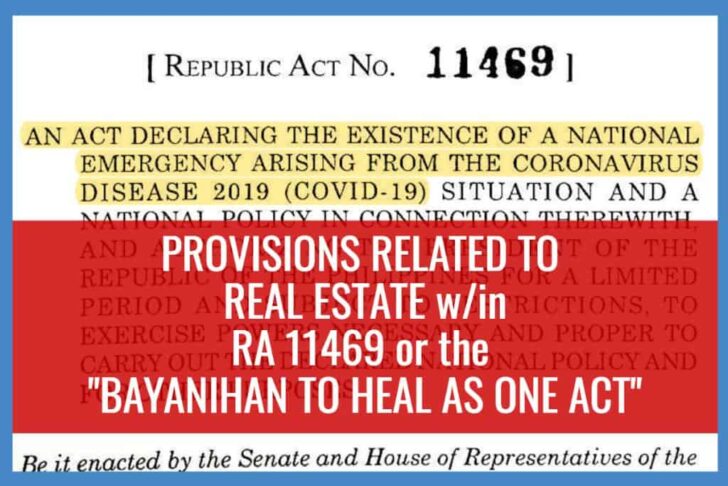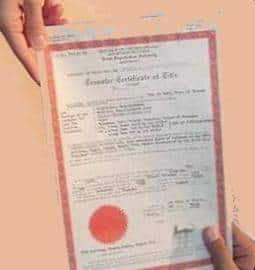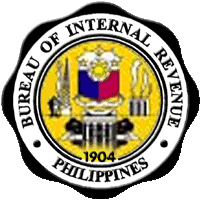Last Friday, April 4, 2014, we heard over the radio that Sen. Sonny Angara filed Senate Bill No. 2148 (Home Mortgage Relief Act of 2014) which proposes that tax incentives be given to first-time homebuyers. But how exactly does the proposed bill intend to do this? I’ll try to answer this below, and I’ll also share the full text so you can read it and see for yourself.
What is the bill all about?
In Senator Angara’s Explanatory note, he starts with the following:
Nothing gives a person a sense of stability and security than having a place to call his or her own home. Unfortunately, due to the high cost of acquiring one’s own residence, more Filipinos are opting to rent instead.”
This reminds me of a quote from Suze Orman about real estate:

Senator Angara then presents more data and states that the proposed bill aims to “aid Filipino families in acquiring their first family home by providing for Home Mortgage Interest Relief, an individual income tax incentive”.
In a nutshell, the bill aims to encourage people to own their homes, instead of just renting, by making it more affordable for first-time homebuyers through a tax incentive.
Related: 8 Tips for first-time homebuyers (this is an article published in rappler.com which lists just 8 of many tips Jay and I shared at the Money Summit and Wealth Expo last July 13, 2013)
Specifically, the bill proposes that the interest expense on a loan taken by an individual (whether married, unmarried head of the family, or a solo parent) from a bank, Pag-IBIG, or a Cooperative, in order to purchase his/her first home be deductible from his/her gross income for income tax purposes. The maximum amount of the loan shall be P2.5 million.
In other words, for every monthly amortization, the portion pertaining to the interest expense shall be deductible for income tax purposes. Meaning, the homebuyers must still pay the interest, but only later, when income tax preparation and payment comes, will it be deductible from the income tax that the homebuyers need to pay. While it may not be a very big amount, any tax incentive is of course welcome.
How will this be operationalized?
Assuming that the bill will be passed into law (and I assume that this will get some opposition from the Department of Finance (DOF) since this would mean less revenues for the government), Implementing Rules and Regulations (IRR) will be issued by the DOF, Housing and Land Use Regulatory Board (HLURB), and the Bureau of Internal Revenue (BIR).
Coming from a tax background, my first thought is that since many homebuyers are employees, this act will change the computation of withholding tax on wages, so this will be a concern of the Human Resources (HR)/Compensation department.
Anyway, the expanatory note and full text of SB No. 2148 is reproduced below. You may read it and form your own opinions.
Explanatory note for Senate Bill No. 2148
SIXTEENTH CONGRESS OF THE )
REPUBLIC OF THE PHILIPPINES )
First Regular Session )SENATE
S.B. No. 2148
___________________________________________________
Introduced by Senator SONNY M. ANGARA
___________________________________________________
AN ACT
PROVIDING FOR HOME MORTGAGE INTEREST RELIEF FOR THE FIRST
FAMILY HOME, AMENDING FOR THE PURPOSE SECTION 34 OF THE NATIONAL
INTERNAL REVENUE CODE OF THE PHILIPPINES, AS AMENDED.
EXPLANATORY NOTE
Nothing gives a person a sense of stability and security than having a place to call his or
her own home. Unfortunately, due to the high cost of acquiring one’s own residence, more Filipinos are opting to rent instead. According to an initial study conducted by the Statistical
Research and Training Center of the National Economic and Development Authority (NEDA), there are approximately 1.5 million households or 7.2% renters out of the total 21.5 million households nationwide.At present, more and more developers are offering affordable housing options through
low down payments and easy payment terms for potential home buyers. The only remaining deterrent faced by would-be buyers is the financing aspect, more specifically, the interest rates imposed by banking institutions and by these developers themselves .. This is where’ the government should step in by providing an incentive to those who would be purchasing their first family home.A family home provides an atmosphere of permanence, and serves as one’s sanctuary
from the outside world. Moreover, the wisdom of home ownership lies in the simple fact that instead of throwing away money in monthly rents, one’s money can already be channelled into paying for one’s own piece of property. Home ownership will not only ensure the future security of one’s family but can also be considered as a profitable investment.Along this line, this bill aims to aid Filipino families in acquiring their first family home
by providing for Home Mortgage Interest Relief, an individual income tax incentive.This tax incentive makes any interest actually paid during a taxable year from any loan
obtained for the purpose of acquiring or constructing a family home deductible from the gross income of a qualified taxpayer. By removing. interest rates in the equation, potential homeowners will only have to pay the principal amount of the property, and thus avoid the stress of dealing with ballooning interest payments. Moreover, this relief will provide tax savings for the individual.With the passage of this bill, it is hoped that the shortage of decent housing would be
addressed and our countrymen would have the opportunity to have a place of their own to call home. The proposed bill is also a measure of equity to enable the lower classes to lead better lives.In view of the foregoing, early passage of this bill is earnestly sought.
(Sgd.) SENATOR SONNY M. ANGARA
Full text of Senate Bill No. 2148
SIXTEENTH CONGRESS OF THE ) REPUBLIC OF THE PHILIPPINES ) First Regular Session )
SENATE
S.B. No. 2148
_________________________________________________________
Introduced by Senator SONNY M. ANGARA
_________________________________________________________
AN ACT
PROVIDING FOR HOME MORTGAGE INTEREST RELIEF FOR THE FIRST
FAMILY HOME, AMENDING FOR THE PURPOSE SECTION 340F THE NATIONAL
INTERNAL REVENUE CODE OF THE PHILIPPINES, AS AMENDED.
Be it enacted by the Senate and House of Representatives of the Philippines in Congress
Assembled:
1 SECTION 1. Title. – This Act shall be known as the “Home Mortgage Interest Relief
2 Act of2014”.
3
4 Sec. 2. Declaration of State Policy. – It shall be the policy of the State to encourage
5 home ownership and to provide financial assistance to Filipinos desiring to have their first family
6 homes.
7
8 Sec. 3. Definition of Terms. – For purposes of this Act, the following terms or phrases
9 shall mean or be understood as follows:
10
11 a. Family Home – shall refer to the dwelling house constituted jointly by the husband
12 and wife, or by an unmarried head of the family, including the land on which it is
13 situated, and as defined under Articles 152 and 153 of Executive Order No. 209 or the
14 Family Code of the Philippines, as amended.
15
16 b. First Family Home – shall refer to the first dwelling house, either bought or
17 constructed, and used as the primary residence of a family or by an unmarried head of
18 the family.
19
20 c. Unmarried Head of the Family – shall refer to any person, regardless of civil status,
21 who has one or more dependent/s upon him for chief support.
22
23 d. Dependent – shall refer to any, or a combination of two or more of the following
24 persons:
25
26 i. A father or a mother or both;
27
28 ii. One or more brothers or sisters who are unmarried, not gainfully employed, and
29 less than twenty one (21) years of age;
30
31 iii. One or more legitimate, illegitimate, adopted or foster children provided that
32 such children are unmarried, not gainfully employed, and less than twenty one
33 (21) years of age;
34
35
1 iv. One or more siblings or children, regardless of age, who suffers from a mental
2 or physical defect.
3
4 e. Solo Parent – shall refer to any person qualified as such pursuant to Section 3(a) of
5 Republic Act No. 8972 or the “Solo Parents’ Welfare Act of2000”.
6
7 f. Qualified Mortgage Loan – shall refer to a housing loan from any reputable bank
8 operating in the Philippines, including loans from the Home Development Mortgage
9 Fund (HDMF) or Pag-IBIG Fund, as provided under Republic Act (RA) No. 9679,
10 and cooperatives duly organized and registered with the Cooperative Development
11 Authority, as provided under RA No. 9520 or the “Philippine Cooperative Code of
12 2008”, obtained for the purpose of purchasing or constructing a family home, and
13 whose loan amount does not exceed two million and five hundred thousand pesos
14 (P2,500,000).
15
16 g. Mortgage Interest Relief – shall refer to an itemized tax deduction that allows
17 homeowners to deduct the interest they pay on a qualified mortgage loan used for the
18 purchase or construction of their first family home.
19
20 h. Qualified Taxpayer – shall refer to a taxpayer who is in good standing and has
21 obtained a housing loan for the purpose of acquiring or constructing his family home.
22
23 Sec. 4. Qualified Residence. – In order to be considered as the “first family home” as
24 contemplated under this Act, the following requisites must concur:
25
26 a. The residence being claimed as a first family home must meet the requirements set
27 under Articles 152-153 of the Family Code;
28
29 b. This must be the “first” family home of the taxpayer and be proven as such;
30
31 c. The value of the subject family home must not exceed Two Million Five Hundred
32 Pesos (P2,500,000); and
33
34 d. The claimant must submit all the requisite documents to qualify under this proposal,
35 such as but not limited to the notarized deed of sale, tax declaration, bank assessment,
36 loan documents, Income Tax Retums (ITR) and/or Sworn Statement of Assets,
37 Liabilities and Networth (SALN), and other documents as may be required under the
38 implementing rules and regulations.
39
40 Sec. 5. Exceptional Circumstances. – The qualified taxpayer may still claim the
41 privilege provided under this Act if his/her situation falls under any of the following instances:
42
43 a. If the qualified taxpayer is a solo parent as defined under Section 3(a) of Republic
44 Act No. 8972, otherwise known as “Solo Parents’ Welfare Act of 2000”;
45
46 b. If the original family home was destroyed, either completely or substantially, due to
47 force majeure or an act of God such as but not limited to storms, floods, earthquake,
48 volcanic eruption, fire, and other forms of natural calamities, and the taxpayer
49 constructs or purchases a new residential unit;
50
51 c. If the original family home was lost due to a valid expropriation by the Government.
52
53 Sec. 6. Home Mortgage Interest Relief. — Section 34 of the National Internal Revenue
54 Code (NIRC), as amended, is hereby further amended to read as follows::
55
56 “SEC. 34. Deductions from Gross Income. – Except for taxpayers earning
57 compensation income arising from personal services rendered under an employer-
1 employee relationship where no deductions shall be allowed under this Section
2 other than under SUBSECTIONS (M) AND (N) hereof, in computing taxable
3 income subject to income tax under Sections 24(A); 26; 27(A), (B), and (C); and
4 28(A)(1), there shall be allowed the following deductions from gross income:
5
6 (A) Expenses. –
7
8 ***.
9
10 (M) Premium Payments on Health and/or Hospitalization
11 Insurance of an Individual Taxpayer. – ***.
12
13 (N) HOME MORTGAGE INTEREST RELIEF. ANY
14 INTEREST ACTUALLY PAID DURING A TAXABLE YEAR
15 FROM ANY LOAN OBTAINED FOR THE PURPOSE OF
16 ACQUIRING OR CONSTRUCTING A QUALFIED
17 TAXPAYER’S FIRST FAMILY HOME, AS MAY BE DEFINED
18 BY EXISTING LAWS AND/OR RULES AND REGULATIONS
19 TO BE ISSUED FOR THE PROPER IMPLEMENTATION OF
20 THIS ACT.”
21
22 Sec.7. The necessary implementing rules and regulations (IRR) for purposes of this Act
23 shall be jointly issued by the Department of Finance (DOF), the Housing and Land Use
24 Regulatory Board (HLURB), and the Bureau of Internal Revenue (BIR), within sixty (60) days
25 from the effectivity of this Act.
26
27 Sec. 8. All laws, decrees, executive orders or any other issuances or parts thereof which
28 are inconsistent with the provisions of this Act are hereby repealed, amended or modified
29 accordingly.
30
31 Sec. 9. If any provision of this Act is held invalid or unconstitutional, any other
32 provision not affected shall continue to be in full force and effect.
33
34 Sec. 10. This Act shall take effect fifteen (15) days after its complete publication in the
35 Official Gazette or in at least two (2) newspapers of general circulation.
36
37
38 Approved,
{Source via senate.gov.ph}
What do you think?
So what do you think of this bill? Do you think this will be approved and signed into law? I said my piece above, now it’s your turn. Let me know through the comments section below.



![R. A. 9510 [Credit Information System Act (CISA)] 3 Credit Report](https://www.foreclosurephilippines.com/wp-content/uploads/2015/07/Credit-Report-2-432x378.jpg)




Has this bill been passed into law?
Hi J, not sure of the status. I’ll check and update this article. Thanks!
Any news about approval of this suggestion?
Does this mean its better to hold off buying a house for first time buyers until the bill is passed?
While waiting for the author(my wife Cherry) to reply (ahem…please answer!), I hope you won’t mind if I give my opinion. If you go for the maximum loan of 2.5M, you can potentially save Php144,880.95 on the first year alone (this is the total interest for the first year using the example I gave to answer Jesse’s comment).
However, there is no assurance the bill will be passed anytime soon so it can be a long wait.
Hopefully the bill can be made in to law before 2016 elections. Thanks for the reply.
Out of topic: Any advice if one should go into an assumed balance when buying a land property? Thank you
Hi Noel,
What would be your agreement like in assuming the balance? Do you take-over the loan and will the bank recognize you as the new borrower? Or will it be just an internal arrangement between you and the seller?
very interesting site i read today thnx to u MR.Castillo im currently
in problematic situation where your question to Mr Noel the vendor
offer me the property with Deed of sale with assumption of mortgage
under GSIS -REL account,and i dont know if it was valid agreement and
bcoz lack of knowledge what iam dealing with bcoz i rent 6 years and
memories occured hard to let go the house and aug 2013 i accept her
offer in consideration of 95k and we booth agreed that i should pay 6,300 monthly amortization to her
starting august 2013 up sept this year so my problem is im confuse what
to do if i still continue paying her monthly this oct bcoz id found out
last 3 weeks in GSIS that her account is REL- means im not acknoledge by
the mortgagee to assumed the loan mortgage and the status of the
housing loan to my vendor is up to date and sallary deducted which is
good to hear,atleast its not foreclose,but sad to hear they added to me
that the vendor and i agreement is just for both of us and the agreement
of the gsis and my vendor of the mortage is not my bussiness,if by
chances in 15 years i complete paying it monthly the tittle release to
the name of the awardee w/c is the vendor so 1 month now im searching
knoledge and till today i found your site and hoping some advice bcoz im
lack of knoledge,i just only have deed of sale with assumption of
mortgage indicate the consideration of sum 95 k,and i started to have
bad feelings that the deed of sale w/ ass of mortgage is invalid,i
trusted the vendor bcoz im starting renting 2007 and ill never thought this subd. house and lot is a loan mortgage, she claim 2003 but when i ask in gsis she started to pay 6,300 monthly 2012
and 2013 she restructured to gsis withouth telling me so back to zero
,and the 95 k she got to me w/c she said the 2012 she payed and right
but i said only deed of ass mortgage i got as paper documents no
instrument stating the total price ,price mortgage .,and not state to
that deed that she receive money as monthly amort ,just giving me a
received payment petty cash voucher i dunno if its valid or not,im seeking some information on what to do,and seeking some rights and a security for the money she received to me if something dishonest act she did
or what if i finish it 15 years paying 6300 and she didnt transfer the
tittle to my name ,im really clueless …hoping ur patient in reading my
situation.thanks in advance.ps she give me once xerox of her payslip in dep ed,in dedct sallary 0133 ded code GSIS
Pabahay Housing Loan,then sept 2014 the code change to 0191 w/c i
confuse and then there is new load 0132 gsis cosol-loan 7/ 2014–6/2020 dedcted amount is 6,902 followed by 3 other deduction 2014 Pgibg/MPurpose LOan and twice entry deduction of City Savings bank .
HI very interesting site i read today thnx to u MR.Castillo im currently
in problematic situation where your question to Mr Noel the vendor
offer me the property with Deed of sale with assumption of mortgage
under GSIS -REL account,and i dont know if it was valid agreement and
bcoz lack of knowledge what iam dealing with bcoz i rent 6 years and
memories occured hard to let go the house and aug 2013 i accept her
offer in consideration of 95k and we booth agreed that i should pay 6,300 monthly amortization to her
starting august 2013 up sept this year so my problem is im confuse what
to do if i still continue paying her monthly this oct bcoz id found out
last 3 weeks in GSIS that her account is REL- means im not acknoledge by
the mortgagee to assumed the loan mortgage and the status of the
housing loan to my vendor is up to date and sallary deducted which is
good to hear,atleast its not foreclose,but sad to hear they added to me
that the vendor and i agreement is just for both of us and the agreement
of the gsis and my vendor of the mortage is not my bussiness,if by
chances in 15 years i complete paying it monthly the tittle release to
the name of the awardee w/c is the vendor so 1 month now im searching
knoledge and till today i found your site and hoping some advice bcoz im
lack of knoledge,i just only have deed of sale with assumption of
mortgage indicate the consideration of sum 95 k,and i started to have
bad feelings that the deed of sale w/ ass of mortgage is invalid,i
trusted the vendor bcoz im starting renting 2007 and ill never thought this subd. house and lot is a loan mortgage, she claim 2003 but when i ask in gsis she started to pay 6,300 monthly 2012
and 2013 she restructured to gsis withouth telling me so back to zero
,and the 95 k she got to me w/c she said the 2012 she payed and right
but i said only deed of ass mortgage i got as paper documents no
instrument stating the total price ,price mortgage .,and not state to
that deed that she receive money as monthly amort ,just giving me a
received payment petty cash voucher i dunno if its valid or not,im seeking some information on what to do,and seeking some rights and a security for the money she received to me if something dishonest act she did
or what if i finish it 15 years paying 6300 and she didnt transfer the
tittle to my name ,im really clueless …hoping ur patient in reading my
situation.thanks in advance.ps she give me once xerox of her payslip in dep ed,in dedct sallary 0133 ded code GSIS
Pabahay Housing Loan,then sept 2014 the code change to 0191 w/c i
confuse and then there is new load 0132 gsis cosol-loan 7/ 2014–6/2020 dedcted amount is 6,902 followed by 3 other deduction 2014 Pgibg/MPurpose LOan and twice entry deduction of City Savings bank .
If the price of the house is, let’s say, $2 million, how much do we expect to save from this incentive?
For OWFs, like me, does this bill offer any benefit?
Hi Jesse, I was making a sample computation for this while waiting for my wife to answer, and my sample computation is based on a Php2.5M loan at 6% interest rate @ 10 years to pay (sorry, I should have seen your comment earlier so I can use 2Million).
Anyway, on the first year alone, the total interest would be Php144,880.95, which is very significant, assuming all would be tax deductible.
I’ll make a separate follow-up post to illustrate this.
For OFW’s, this would only apply if you are buying your first home.
“assuming all would be tax deductible.”
That would be nice,
BUT as I understand the Bill, the interest sum is only deductable from the INCOME, BEFORE counting the tax, so the saving will be only the TAX at that sum.
How much the saving would be depend of income size per year, because the tax is higher percentage at higher incomes. In the 144, 880 example the saving can be as low as zero, but for people affording a 2.5 million house, the salary is probably high enough to save around 50 000 pesos per year by the tax deduction.
Ok yan lalo na sa mga nagtratrabaho na nagsisimulang magpundar. ayos!
This is wonderful, especially to those newly weds taht want to buy a new house. Thanks to Sonny Angara!